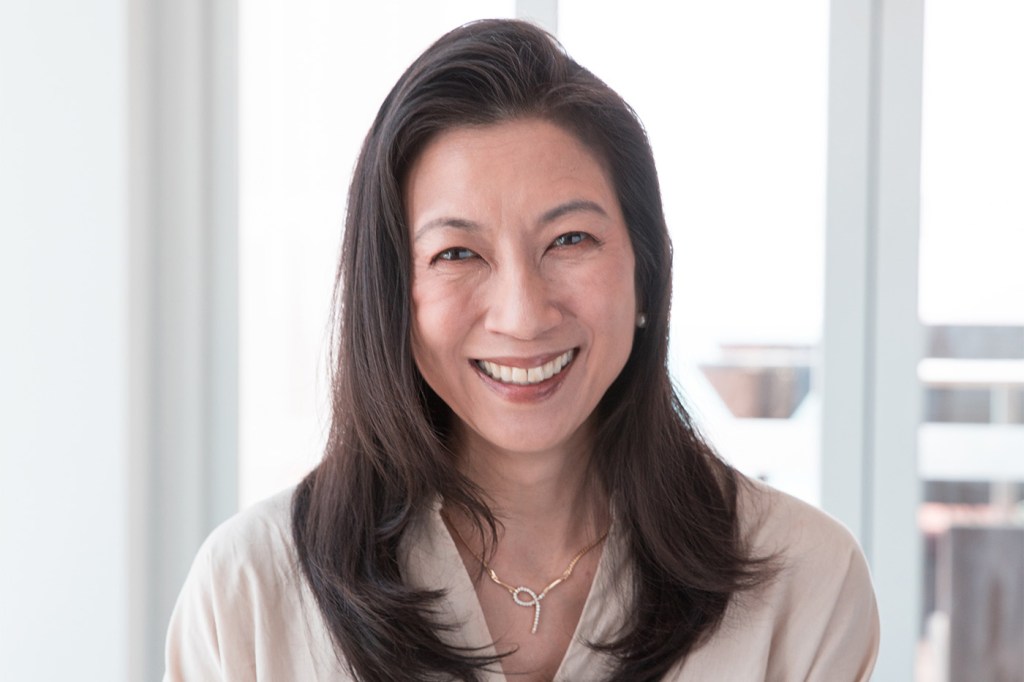Kellee Tsai appointed dean of the College of Social Sciences and Humanities at Northeastern University

Kellee Tsai, a political scientist, has been appointed dean of the College of Social Sciences and Humanities at Northeastern University. She will start on Feb. 26, 2024.
Tsai joins Northeastern from Hong Kong University of Science and Technology where she has served as the dean of humanities and social science since 2018. She arrived at the university in 2013 as the head of its social science division.
Prior to that, Tsai spent the first 13 years of her academic career at John Hopkins University. She began as a political science professor before becoming director of the East Asian studies program and eventually vice dean of social sciences and humanities and vice dean for graduate programs.
“Northeastern practices what it preaches, and I believe its graduates are uniquely equipped to tackle grand challenges facing humanity in the 21st century,” Tsai says. “Relatedly, I’m also deeply impressed by the fact that the university actively nurtures interdisciplinary and cross-college collaboration.”
Tsai has consistently advocated for interdisciplinary approaches to tackling some of the most pressing issues facing the world today, giving students the skills and knowledge they need to adapt and succeed in a world that is rapidly being transformed by technology.
“I am thrilled that Dean Tsai is joining us at Northeastern,” says David Madigan, provost and senior vice president for academic affairs. “Her global and impact-oriented perspective aligns superbly well with our academic plan and she is the perfect leader to propel the College and our entire global university to even greater heights.”
Outside of academia, Tsai previously worked at Morgan Stanley and Women’s World Banking and has experience consulting with investment banks, development banks, NGOs, government agencies and international financial organizations, including the World Bank. Tsai looks forward to building on Northeastern’s emphasis on creating global, interdisciplinary connections between what students and faculty do inside and outside the classroom.
“I’m excited by the opportunities that are available to keep pushing in that direction and for Northeastern and CSSH in particular to demonstrate leadership in showing how that can be done,” Tsai says. “As all these other institutions are scrambling to catch up and redefine their curriculum and provide experiential learning and research activities, Northeastern has that foundation already.”
With advancements in AI and other technologies happening every day, Tsai says the need for the next generation of people with training in the social sciences and humanities has never been greater.
“I believe that everything we do in the humanities and social science is relevant to the technologies that are being produced,” Tsai says. “The urgency of appreciating the societal and humanistic impact of technologies has never been more than in this day and age.”
“Our students are able to adapt much more fluidly because they have the critical thinking, the creativity and, quite frankly, the empathy that’s required to navigate these changes,” Tsai adds.
At Hong Kong University of Science and Technology, Tsai served as associate director of the Center for AI Research and founding director of the center’s AI Ethics and Governance Lab where she brought the social sciences and humanities into conversations around ethical uses for AI.
Pointing to Northeastern’s AI Ethics Board, Institute for Experiential AI and President Joseph E. Aoun’s humanics-infused approach to robot-proofing education, Tsai says Northeastern is well positioned to forge the future of the social sciences and humanities.
Tsai’s research focuses on the political economy of China, with an emphasis on party-state capitalism, the surveillance industry and the local developmental impact of reverse migration in China and India. She is an international advisory board member of the Asia Research Institute at the National University of Singapore, the India-China Institute at the New School for Social Research in New York and the Taipei School of Economics and Political Science in Taiwan. Tsai is also a member of the World Economic Forum’s Global Future Council on the Future of Growth.
Cody Mello-Klein is a Northeastern Global News reporter. Email him at c.mello-klein@northeastern.edu. Follow him on Twitter @Proelectioneer.






